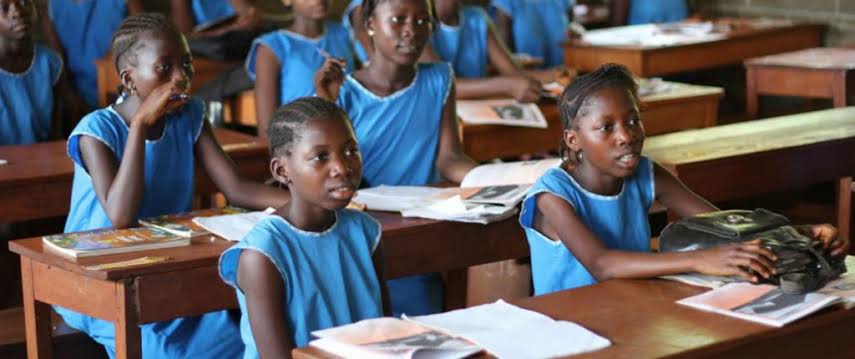Education is universally recognized as fundamental human right and powerful tool for personal empowerment and national development. In Nigeria as in many parts of world, access to education remains critical issue. Particularly for girls. This article delves into multifaceted challenges that hinder girls' access to education in Nigeria. Examining both systemic barriers. And societal factors that perpetuate inequalities.
Girls' education in Nigeria has made significant strides over years. There have been improvements in enrollment rates. Policy frameworks aimed at promoting gender equality have also advanced. However deep-rooted challenges continue to impede the educational journey of many girls. This is especially true in rural and marginalized communities. Understanding these challenges is crucial for devising effective strategies. Such strategies ensure equal educational opportunities for all Nigerian children.
Sociocultural factors play significant role in shaping attitudes towards girls' education in Nigeria. Traditional gender norms often prioritize boys' education over girls' viewing girls as primarily responsible for household chores and caregiving. Early marriage practices further limit girls' access to education in some communities. Families may prioritize marrying off daughters at young age rather than investing in their schooling.
Furthermore, persistent beliefs about gender roles and capabilities can discourage girls from pursuing education beyond primary level. Lack of support from family members, particularly male relatives, can also hinder girls' educational aspirations. Addressing these deeply ingrained attitudes requires targeted interventions that challenge stereotypes and promote the value of girls' education within communities.
Financial Barriers and Economic Constraints
Financial constraints pose a significant barrier to girls' education in Nigeria. Despite efforts to eliminate school fees at the primary level through policies such as the Universal Basic Education (UBE) program, hidden costs such as textbooks, uniforms, and transportation expenses remain prohibitive for many families, especially those living in poverty. The economic impact of COVID-19 has exacerbated these challenges, pushing more families into poverty and increasing the likelihood of girls being withdrawn from school to support household income.
Additionally, the lack of adequate infrastructure and facilities in rural schools further limits access to quality education for girls. Many schools lack separate sanitation facilities for girls, which can deter them from attending school during menstruation. Unsafe school environments and long distances to schools also pose safety risks for girls, particularly in areas prone to insecurity or violence.
Impact of Child Marriage and Early Pregnancy
Child marriage and early pregnancy are significant barriers to girls' education in Nigeria. Despite legal frameworks prohibiting marriage before the age of 18, the practice persists in many communities, driven by poverty, cultural norms, and lack of enforcement of existing laws. Girls who marry early are often forced to drop out of school to assume household responsibilities and child-rearing duties, perpetuating cycles of poverty and limiting their future prospects.
Moreover, early pregnancy can result in girls being expelled or discouraged from returning to school due to stigma and discrimination. The lack of comprehensive sexuality education and reproductive health services further exacerbates these challenges, leaving girls vulnerable to unintended pregnancies and health complications.
Quality of Education and Learning Environment
The quality of education available to girls in Nigeria varies widely, with disparities in teaching standards, curriculum relevance, and learning outcomes. Inadequate teacher training and high pupil-teacher ratios in many schools affect the quality of instruction and hinder girls' academic performance. The curriculum may also reinforce gender stereotypes and biases, limiting girls' access to subjects such as science, technology, engineering, and mathematics (STEM).
Furthermore, the digital divide exacerbates educational inequalities, as girls from low-income and rural backgrounds often lack access to technology and internet connectivity for remote learning. The COVID-19 pandemic highlighted these disparities, exposing the digital divide and its impact on girls' ability to access online education resources.
Policy and Interventions to Promote Girls' Education
Efforts to promote girls' education in Nigeria include policy reforms, community engagement, and targeted interventions. The Nigerian government has committed to achieving gender parity in education through initiatives such as the Girl Child Education Unit and the Safe Schools Initiative. These programs aim to improve access to quality education for girls, provide scholarships and incentives to vulnerable students, and create safe and inclusive learning environments.
Non-governmental organizations (NGOs) and civil society groups also play a crucial role in advocating for girls' education and implementing grassroots initiatives. Programs that provide mentorship, life skills training, and reproductive health education empower girls to stay in school and pursue their educational aspirations.
Conclusion
In conclusion, addressing the challenges of access to education for girls in Nigeria requires a comprehensive approach that tackles systemic barriers, challenges harmful gender norms, and ensures equitable access to quality education. Empowering girls through education not only enhances their individual well-being and opportunities but also contributes to broader social and economic development. By investing in girls' education and removing barriers to learning, Nigeria can harness the full potential of its young population and build a more inclusive and prosperous future for all.
